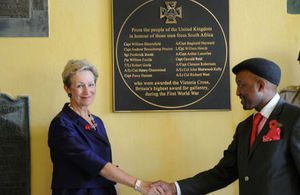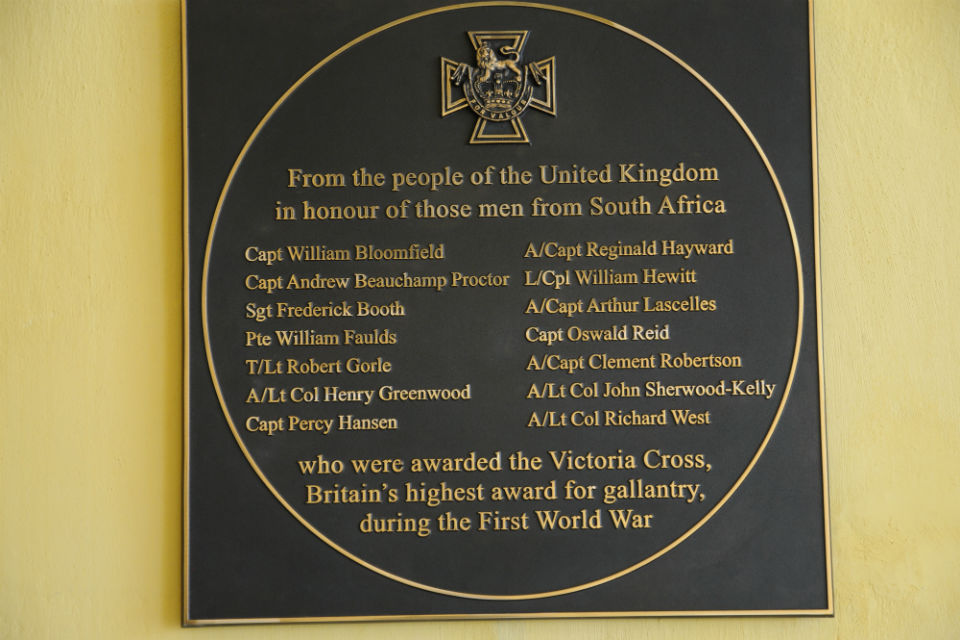Unveiling of WWI Victoria Cross Plaque – The Castle, Cape Town
Remembering all who came from around the globe to join up and fight alongside their British & Commonwealth counterparts

On 11 November 2014 High Commissioner Judith Macgregor attended the unveiling of the Victoria Cross Plaque to commemorate and celebrate a generation that sacrificed so much for us a hundred years ago.
In her speech the High Commissioner remembered the brave men and boys who came from around the globe to join up and fight alongside their British & Commonwealth counterparts, helping to secure the freedom we enjoy today. Equally, brave and committed women fought the social convention of the day to work alongside the troops and minister to the sick and wounded of war.
Remembering those who demonstrated immense courage and bravery; for which some at the time paid the ultimate price; the High Commissioner spoke about how the First World War touched the lives of millions of people. Altogether, 146, 000 South Africans served during World War One in South West Africa, East Africa and far away in Europe. Their goal remained the same - to help overcome tyranny and resist the advance of aggression. Over 6,000 did not return and a further 18, 000 were injured.
The High Commissioner and Director General of the Department of Military Veterans Tsepe Motumi unveiled the Victoria Cross plaque with the names of 14 extraordinarily brave soldiers from South Africa who each has an incredible story to tell. The 14 were awarded the Victoria Cross for their individual acts of gallantry in the face of the enemy.
One officer, Private William Faulds; born in Cradock; Eastern Cape Province was awarded the Victoria Cross for immense bravery shown in the Battle of Delville Wood, which is commemorated beside the Victoria Cross Plaque in the Castle Arch. The battle started on the afternoon of 14 July 1916. On two separate occasions on the 18th and 20th of July, disregarding his own safety, Private Faulds ran out across the open battlefield to rescue wounded comrades. On the second occasion, he carried the wounded soldier half a mile to the dressing station while the artillery fire at the time was so intense that stretcher parties considered movement onto the battlefield would have meant certain death. When the Brigade was finally relieved late on 20 July, only 750 of the 3,153 South Africans survived.

Victoria Cross
Boys from schools where a number of the Victoria Cross holders being celebrated completed their studies, attended the event clearly displaying the enduring link. The sacrifice and bravery of all the WWI soldiers and volunteers will never be forgotten. In a world of continuing conflict, we should try to do better in the future to demonstrate that their actions were not taken in vain.